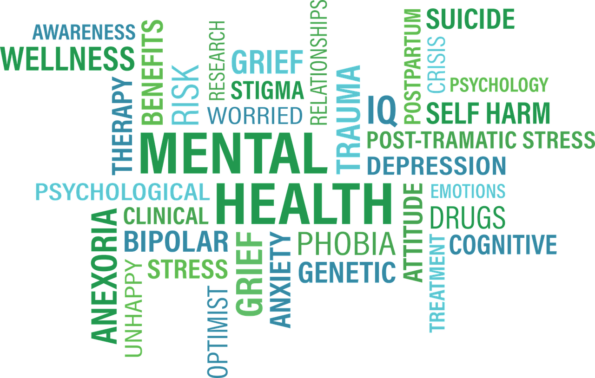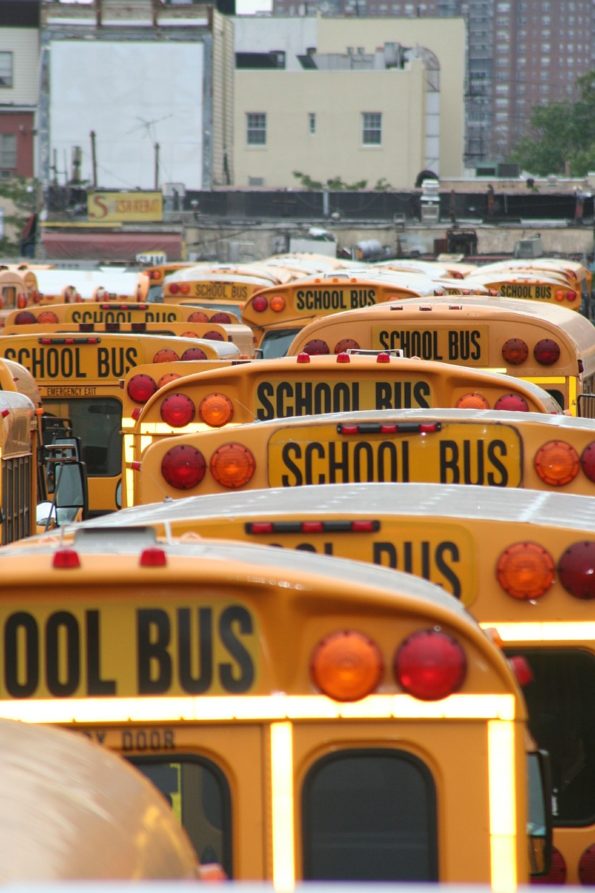[dropcap]C[/dropcap]ollapsing in tears and overwhelmed by the increase of school demands, high school teenagers like Carolyn Walworth constantly long for sleep. During school days she fights to stay awake in her morning classes, nodding off every few minutes struggling to focus. Like many other teens, she must climb through piles of homework before finally crawling into bed at midnight.
These are just a few struggles teenagers of our generation have to endure. Waking up at six or earlier in the morning and running on less than eight hours of sleep, has become the new norm for the majority of high school teenagers. Some of these problems could be solved if high schools were to start later in the morning.

I know plenty of students other than myself, who have stayed up well past midnight to finish an assignment, or memorizing information for a test. Many past teachers have advised us not to memorize, but to learn the information. Question is, how can we?
Many of us are crunched for time that memorizing has become our new friend. Words from a fellow student Carolyn Walworth, who was mentioned in an article done by Ruthann Richter states that “[i]t’s an insane system. … The whole essence of learning is lost.”
Many of us try to balance work, school, homework, sports, and for those that belong to a religion, perhaps Wednesday night classes. So where would we put aside time to learn the information we were taught at school? For example, I have no time to fit it anywhere if I want to get at least four hours of sleep before I wake up, only to start my stressful sleep deprived cycle all over again.
Consequences of Sleep Deprivation
There are many problems and consequences due to sleep deprivation. The primary effect according to a document created by the American Academy of Sleep Medicine is the “excessive daytime sleepiness.” They state how risky this state of sleep deprivation is: “This degree of severe sleepiness can be a safety hazard, causing drowsy driving and workplace injuries.”
According to an article written by the University of Michigan, sleep deprivation can impact student GPA’s: “Sleep deprivation in students has been linked to lower GPAs because sleep affects concentration, memory and the ability to learn.”
The University of Michigan also states that “[s]leep deprivation hinders your ability to perform complex cognitive tasks like those required on exams.” They also say that “it is unlikely that you will retain much information [when] you study while sleep-deprived.”
Consequences of Early Start Times
What is wrong with the start times we have now? Well, one of the major problems that have arisen from the start times we have today is being sleep deprived.
[perfectpullquote align=”left” bordertop=”false” cite=”” link=”” color=”” class=”” size=””] Sleep deprivation in students has been linked to lower GPAs because sleep affects concentration, memory and the ability to learn. [/perfectpullquote]
According to the National Sleep Foundation, “Teens need about 8 to 10 hours of sleep each night to function best. Most teens do not get enough sleep – one study found that only 15% reported sleeping 8 ½ hours on school nights.”
So what are the consequences of being sleep deprived that has risen from early start times? Well here are just a few that the National Sleep Foundation has stated. They state that sleep deprivation will …
- Limit your ability to learn, listen, concentrate and solve problems. You may even forget important information like names, numbers, your homework or a date with a special person in your life
- Make you more prone to pimples. Lack of sleep can contribute to acne and other skin problems
- Lead to aggressive or inappropriate behavior such as yelling at your friends or being impatient with your teachers or family members
- Cause you to eat too much or eat unhealthy foods like sweets and fried foods that lead to weight gain
- Heighten the effects of alcohol and possibly increase use of caffeine and nicotine
- Contribute to illness, not using equipment safely or driving drowsy

According to an article done by Ruthann Richter, “Sleep deprivation increases the likelihood teens will suffer myriad negative consequences, including an inability to concentrate, poor grades, drowsy-driving incidents, anxiety, depression, thoughts of suicide and even suicide attempts.”
Benefits of Later Start Times
What can high school students benefit from later start times? Here is a study that was done to find the benefits of later start times. This study took place in the state of Minnesota, in the city of Edina.
Although the study dates back all the way to the 1990’s, the data taken is still relevant as of today.
According to the study done, the city shifted their high school start time from 7:20 am to 8:30 am. Researchers from the University of Minnesota were then asked to take a look at the impact. According to the article written by Ruthann Richter, “The researchers found some surprising results: Students reported feeling less depressed and less sleepy during the day and more empowered to succeed. There was no comparable improvement in student well-being in surrounding school districts where start times remained the same.”
With the data they had collected, the Minneapolis Public School District decided to change their start times at all of its schools’ for 57,000 students in 1997. They found from that change, that their school attendance rates were rising and that their once sleep-deprived students were getting at least another hour of sleep each night.
A few other studies like this one was done elsewhere in other states as well. Many of them reported back that their students were getting more of their much-needed sleep, as well as improvements in other areas pertaining to their mental, emotional and physical health.
[perfectpullquote align=”left” bordertop=”false” cite=”” link=”” color=”” class=”” size=””] [I]t is unlikely that you will retain much information [when] you study while sleep-deprived.
[/perfectpullquote]
Disadvantages & Solutions

What are the disadvantages of later start times? A disadvantage in high schools starting later would be transportation. Many districts have buses that run on specific schedules, which would be impacted if schools were to change their schedules. A solution to this disadvantage that the National Sleep Foundation recommends is to reorganize start times: “One solution that has worked to solve this problem is flipping start times, most commonly elementary with high school. This solution requires no extra buses or drivers, just a change in the order of pickups.”
Another disadvantage schools’ have trouble with, would be regarding the students that participate in sports. Later start times would mean students that play in after-school sports would have to be released later, reducing their time to be able to practice. In some cases, students may even have to leave class early to be able to participate in their sport. This might cause students to make a decision in choosing between their academic career and their sports career, which is quite unfair.
Although there is not a definite solution to the sports problem, there are some minor ones that schools have done. Some of these minor solutions the National Sleep Foundation addresses are having, “Practice times […] rescheduled, and in some cases lights are installed so practice can run a little later. Match times are changed so that students do not have to leave class early.”
There are a few other problems that pertain to high schools starting later, but in all honesty, are they really more important than the mental and emotional health of sleep-deprived teenagers?
Many students, as well as the school itself in terms of academic success, would benefit off of pushing high school start times to later in the morning.
_________________________________________________________
Featured Image by Pixabay

I do agree, whenever I know that it’s the weekend no matter how tired I am I stay up till midnight or later. Having a later start time sounds good, but it won’t make kids go to bed earlier. Sports will run an hour later. Dinner will be an hour later and homework will start an hour later. It all cancels out.
I do agree that teens (and adults for that matter) should be getting more sleep, and part of the solution may be moving times that school begins ahead of where it currently is now, but part of the problem with this is your creating less incentive to go to bed all the earlier. If im a kid in high school, aged 14 to 18, I probably won’t go to bed any earlier knowing that school just starts an hour later. I’m more likely to stay up even later than before, canceling out the benefits of having a later start time. Not to mention the fact that having an earlier start time means more preparation for a future job. Not saying these rules apply to all people, but this may only create more problems for some students.